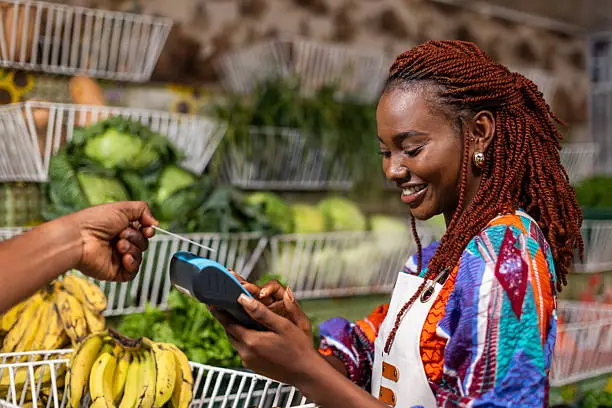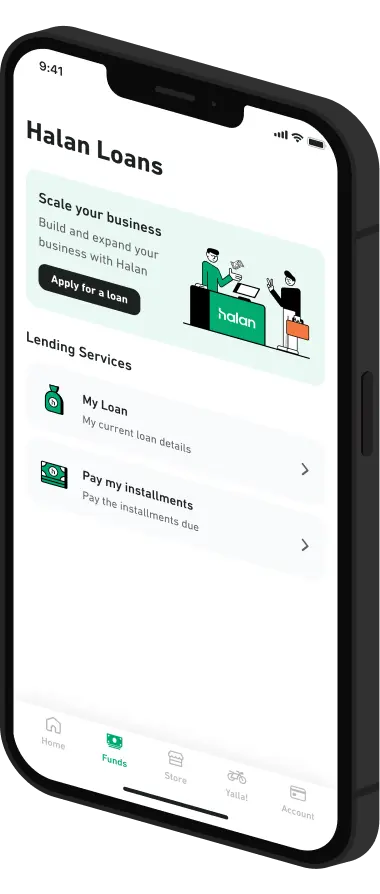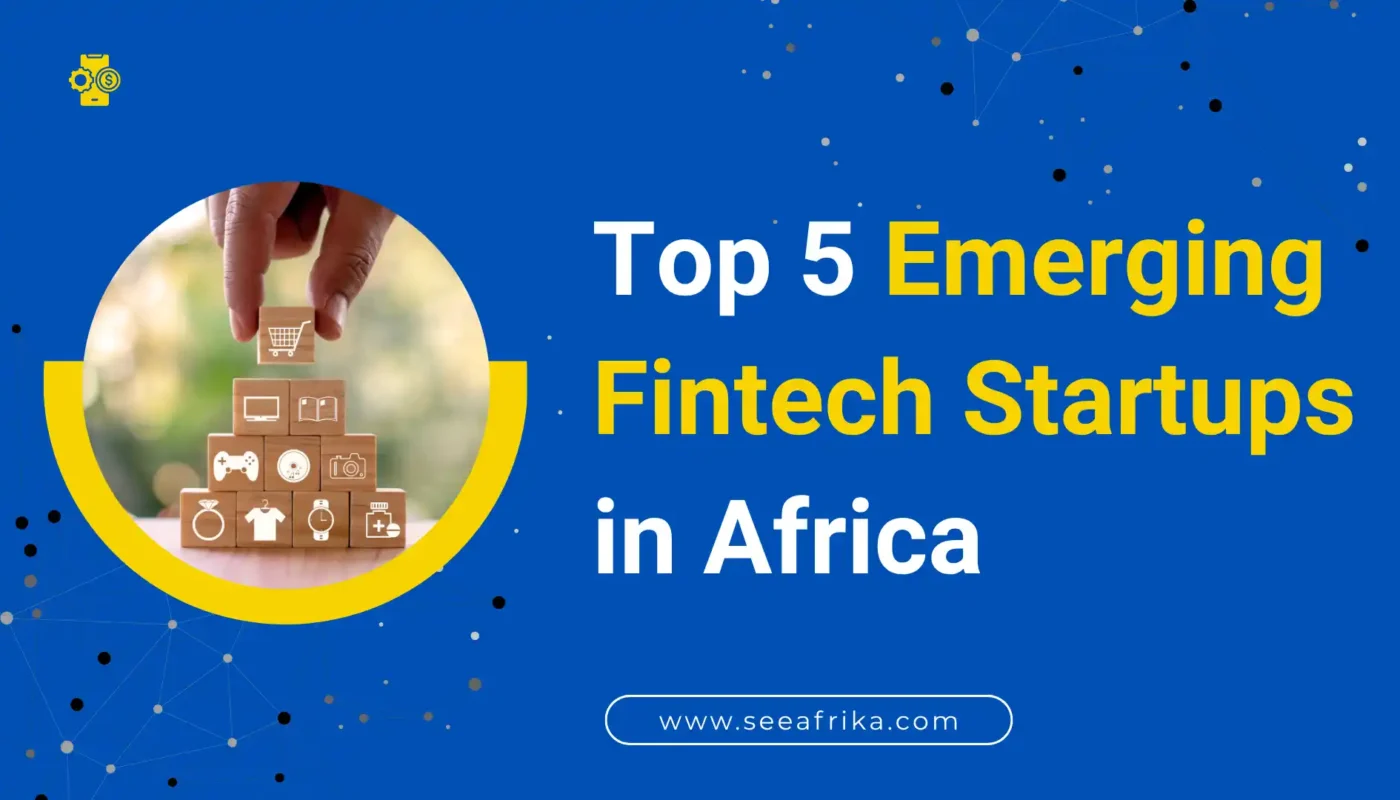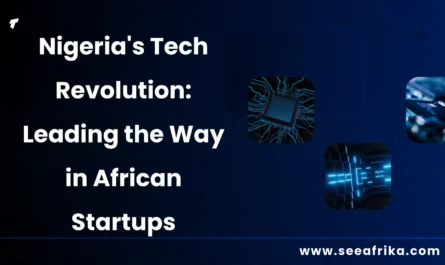Africa is rapidly establishing itself as a global leader in financial technology. The rise of emerging fintech startups in Africa is transforming the way millions access and interact with financial services. The continent remains home to over 350 million unbanked adults, representing the largest financial inclusion gap worldwide. This urgent need has spurred a wave of innovation tailored to local challenges.
Many freelancers and creative professionals across Africa have long faced challenges receiving international payments. Before fintech innovations, these payment hurdles limited their income and curtailed opportunities to work with clients globally. Thanks to emerging fintech startups in Africa offering digital dollar cards, multi-currency virtual accounts, and cross-border payment platforms, creatives can now invoice clients worldwide, receive payments in major currencies like USD, GBP, or EUR, and access global services—all from their smartphones.

This transformation is unlocking countless new avenues for income and professional growth. Their stories symbolize how fintech is reshaping financial realities for millions of freelancers, artists, designers, writers, and other creatives across the continent.
Why Emerging Fintech Startups in Africa Are Thriving
Several fundamental factors drive the phenomenal growth of emerging fintech startups in Africa. First, formal banking access remains low—a staggering 40% of Africans are unbanked, creating vast opportunities for digital financial solutions. Moreover, cash still rules around 90% of transactions, underscoring the continent’s reliance on informal systems.
Contrasting this gap is Africa’s mobile-first population, which is young and tech-savvy. Over 60% of the population is under 25, eager for mobile services that offer convenience and speed. The shift to smartphones, alongside increased internet coverage, creates fertile ground for emerging fintech startups in Africa to flourish.
Government support through progressive policies and regulatory sandboxes also encourages fintech innovation. Adding to this, the growing demand for cross-border trade and remittances, especially in regional markets, sets the stage for fintech growth. Emerging fintech startups in Africa focus on building trust, speed, and ease of use, critical factors in widespread adoption among both urban and rural populations.
Also read:
Meet the New Wave: 5 Emerging Fintech Startups in Africa Making Waves
In the bustling fintech landscape, several emerging companies are rising to the forefront, highlighting the vibrant innovation among Africa’s fintech startups.
1. GetCleva (Nigeria)
GetCleva is a leading example of the emerging fintech startups in Africa that directly tackle one of the continent’s most persistent financial barriers: foreign exchange (FX) restrictions. These restrictions have historically prevented millions of Africans from fully engaging in the global digital economy, limiting their access to international services and payment options.
By providing virtual dollar-denominated cards and instant US-dollar accounts, GetCleva empowers users to seamlessly pay for popular global platforms like Netflix, Amazon, Adobe, and Spotify—services often priced in foreign currencies and inaccessible with local payment methods.

What sets GetCleva apart among the emerging fintech startups in Africa is its ability to bridge the gap between African consumers and the global digital economy. For freelancers, creatives, and entrepreneurs who rely on international payments and subscriptions, GetCleva’s solution eliminates the friction caused by traditional banking limitations and regulatory foreign exchange hurdles. The platform supports direct deposits from global payment processors like Payoneer and PayPal, enabling seamless global payouts and spending in USD without the usual barriers.
2. Geegpay (Nigeria/Kenya)
Geegpay is one of the leading emerging fintech startups in Africa, serving freelancers and remote workers by providing virtual bank accounts in USD, GBP, and EUR. This innovative platform enables users to instantly create foreign currency accounts, making it effortless to receive international payments from clients on platforms such as Upwork, PayPal, and Fiverr.
By eliminating traditional delays and high fees with fast, low-cost currency conversion and multi-currency wallets, Geegpay empowers Africans to tap into the global gig economy fully.
Among the unique offerings from Geegpay are instant virtual USD cards that users can spend globally on millions of websites and services. The platform automates invoicing, enabling freelancers to send professional billings to clients and get paid faster. It also supports secure fund transfers to local African banks and mobile money wallets across countries, backed by strong encryption and industry-standard data protection. This combination of services sets Geegpay apart among emerging fintech startups in Africa focused on solving cross-border payment challenges.
3. OPay
OPay is one of the fastest-growing emerging fintech startups in Africa, launched in 2018 to provide secure, affordable, and easy-to-use financial services. The platform provides a comprehensive one-stop solution for payments, transfers, savings, loans, and POS merchant services, serving over 50 million users and a million merchants across Nigeria, Egypt, and other countries.
Its innovative features include instant account opening, zero maintenance fees, 10 free ATM withdrawals monthly, and up to 6% cashback on airtime and data purchases.
Unique to OPay is its partnership with Mastercard, which enables users to access virtual payment cards for global e-commerce without requiring a traditional bank account. Additionally, it provides merchants with free mini POS systems featuring instant settlements and low transaction fees, driving financial inclusion by empowering small businesses.
As a leading force among emerging fintech startups in Africa, OPay continues to expand rapidly into new markets, including Kenya, Ghana, and South Africa, while creating millions of jobs. Backed by major investments, including a recent valuation of $2.75 billion, OPay exemplifies how African fintech companies are reshaping payments, banking, and commerce.
4. MNT-Halan (Egypt)
MNT-Halan is one of the most dynamic emerging fintech startups in Africa, combining lending, payments, e-wallets, and ride-hailing into a single, robust digital ecosystem. Its unique offline lending model leverages mobile usage behavior, enabling unbanked users to build credit and access formal financial services with ease. This holistic approach extends beyond payments, providing a comprehensive suite of financial tools perfectly tailored to local needs.
The platform’s flagship offering includes a mobile wallet for secure digital payments, Buy Now Pay Later (BNPL) options for consumers, microloans for small businesses, and seamless bill payments. MNT-Halan’s proprietary core banking system integrates AI and machine learning to optimize credit risk and improve user experience. With over 7 million customers and billions of dollars disbursed in loans, it is Egypt’s fastest-growing lender to the underbanked.

As a leading player among emerging fintech startups in Africa, MNT-Halan is expanding rapidly beyond Egypt to serve new markets across the continent. With strong investor backing and innovative fintech solutions, it’s helping millions transition from cash to digital finance. MNT-Halan exemplifies how African fintech is innovating to solve complex financial challenges at scale.
5. M-Kopa
M-KOPA stands as a prominent example of emerging fintech startups in Africa, providing financial services to underserved consumers. Initially focusing on solar products, M-KOPA has expanded its unique offerings to include smartphone financing, digital loans, and health insurance. This model allows everyday earners to access essential products and services through flexible micropayments, building credit over time .
M-KOPA’s innovative approach combines digital micropayments with AI and machine learning to create individualized credit profiles for its users. This data-driven model helps extend credit to those without traditional banking histories. The company has successfully extended over $1.5 billion in credit to more than 6 million customers across Kenya, Uganda, Nigeria, Ghana, and South Africa.
As one of the leading emerging fintech startups in Africa, M-KOPA is redefining financial access for millions. It addresses the needs of informal economy workers often overlooked by traditional systems. M-KOPA’s success highlights how fintech can drive economic inclusion and progress across the continent.
The Human Impact of Fintech Startups in Africa
The stories behind the statistics highlight the transformative power of emerging fintech startups in Africa. A graphic designer in Nairobi relies on Geegpay to invoice international clients in different currencies, overcoming challenges of payment delays and high fees. This platform has expanded her earning potential and financial stability.
Similarly, a university student in Lagos subscribes to international learning platforms like Coursera using GetCleva’s dollar card. A small business owner in Lagos grows her sales using OPay’s mini POS and digital loans, while a daily wage earner in Cairo builds credit through MNT-Halan’s offline lending tied to mobile use. Meanwhile, a Kenyan farmer boosts his livelihood with M-KOPA’s pay-as-you-go solar and smartphone financing. These stories show how emerging fintech startups in Africa empower millions to access finance, build trust, and expand opportunities.
The Broader Economic and Social Impact of Fintech Startups in Africa
The growth of emerging fintech startups in Africa drives financial inclusion for youth, women, and underserved populations. By facilitating digital wallets, micro-lending, and cross-border payments, these startups reduce Africa’s heavy reliance on cash economies. This shift enhances transaction security and efficiency across the continent.
Fintech also fuels job creation, both within startups themselves and by enabling entrepreneurship across various sectors. Financial inclusion has a direct contribution to poverty reduction and greater economic resilience in countries with historically limited banking infrastructure. The collective impact of emerging fintech startups in Africa promises widespread social and economic upliftment.
Also read: The Rise of AI Accelerators and Innovation Hubs in Africa
What’s Next for Emerging Fintech Startups in Africa?
The future of emerging fintech startups in Africa is shaped by innovation trends and evolving ecosystems. Artificial intelligence is increasingly used in credit scoring, helping to extend loans to those without traditional credit histories. Blockchain technologies offer promising solutions in identity verification and secure payments.
New sectors such as insurtech and embedded finance are expanding the reach of financial services into everyday life applications. Additionally, regulatory frameworks are maturing, with countries like Nigeria and South Africa pioneering open finance and virtual asset guidelines. Partnerships between fintech startups, telecoms, and banks will be vital to scaling solutions further.
With mobile internet users expected to exceed 475 million in 2025, the opportunities for fintech to deepen inclusion and transform economies remain vast.
Also read: Top 10 Insurance Companies in Africa
Conclusion: Emerging Fintech Startups in Africa Are Rewriting Finance
When we talk about the top emerging fintech startups in Africa, we’re really talking about much more than just tech companies. These are local innovators — like Nigeria’s GetCleva, Geegpay, and Opay, or Egypt’s MNT-Halan and M-Kopa — who are boldly taking on financial challenges that have lasted for decades. They’re not just building apps; they’re creating real, meaningful opportunities for millions across the continent.
Africa’s fintech revolution is moving at lightning speed, and these startups are at the heart of it all, making finance easier, more inclusive, and more connected than ever before. They’re rewriting the rules and helping shape a future where every African can participate in the global economy.
And here’s the thing: this story is just getting started. Whether you’re an investor, entrepreneur, or everyday user, the real question is—are you ready to join this incredible journey with Africa’s fastest-growing fintech stars? The wave is rising, and it’s time to ride it.





One thought on “Top 5 Emerging Fintech Startups in Africa”